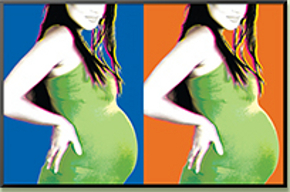IRMS NJ – What’s all the Fuss About Genetic Testing & Pregnancy?


Genetics is a very hot topic these days. IRMS of New Jersey uses genetic technology for so many things that just a short time ago was unthinkable.
Genetics can be complicated and confusing but very important when you’re thinking about conceiving, now, or in the future, so I’m hoping to shed some light on reproductive genetics for you in this post. There are 3 categories of genetic tests that you should be aware of and understand.
1) Testing you: There are two types of tests: Carrier Screening and Karyotyping.
Carrier screening looks for mutations in you or your partner to help assess possible risks to a child you may conceive. At IRMS, we recommend carrier screening testing for the majority of our patients. Patients come to us if they’re having trouble getting pregnant or staying pregnant. We also help single women and men, lesbians, gays and transgender patients conceive using donor sperm or donor eggs. We also assist patients who don’t want to conceive now freeze their eggs for future conception. We think there is value for anyone trying to conceive now or in the future to consider this testing. Many OB/GYN’s are now starting to offer this testing prior to conception, whereas; in the past it was standard to only do testing in pregnant women. The advantage of doing this prior to conception is that you have more options. If you are found to be at high risk of having a child with a genetic disease you can consider IVF with PGD (Preimplantation Genetic Diagnosis) to prevent transmission of that disease. Some people may even consider donor sperm or donor eggs or not conceiving depending upon how they feel about their risks. So carrier testing prior to pregnancy can give you more informed options and choices. If you are using donor sperm or donor eggs, knowing your genetics will help you choose a donor that is low risk for you.
At your first visit at IRMS NJ, you will be offered a blood test for carrier screening. We currently use the company Recombine to perform this testing, www.recombine.com
We are trying to determine if you carry a genetic mutation that does not impact your health but could impact your child’s health. Hundreds of diseases involving thousands of mutations can be tested with just one tube of blood in a short period of time. Carrying one or more mutations is relatively common and does not impact your health but if you and your partner (or your sperm donor or egg donor) carry the same mutation there is a 25% risk that your child could inherit two mutant genes which can result in a severe disease like cystic fibrosis, muscular dystrophy and sickle cell disease to name a few.
Karyotyping is only done if there is a specific problem that increases the risk that your karyotype is abnormal – like having two or more miscarriages or having a low sperm count. This is primarily done to discover any abnormalities, either in number or structure, of the chromosomes.
2) Testing your embryos:
PGS (Preimplantation Genetic Screening) or PGD (Preimplantation Genetic Diagnosis) is a procedure used prior to implantation to help identify genetic defects within embryos created through in vitro fertilization to lower the risk for miscarriages and birth defects.
If you and your partner have matching genetic mutations, about 1% of couples, then you have the option to use IVF and PGD to prevent transmission of disease.
PGS is used in IVF to screen embryos because embryos with extra or missing chromosomes are extremely common and can be one of the most common reasons for IVF failure and miscarriage. Even if your genetic testing is completely normal, you will have some abnormal embryos. Using PGS allows us to find these abnormalities and do a much better job of selecting the embryo that is most likely to create a successful pregnancy.
3) Testing your pregnancy. This is usually done by your obstetrician later in the first trimester.
Once you are pregnant there are a number of noninvasive (MaterniT21) and invasive tests (amniocentesis and CVS testing) that are available. More tests are becoming available all the time so I strongly recommend that anyone who is pregnant, no matter how much testing you have had before (including IVF with PGD or PGS), have a consult with a qualified genetics counselor to discuss all the testing options and the pros and cons of each in your particular situation. There are no right answers here and so many options are available that each person deserves to understand the advantages, disadvantages and limitations of genetic testing available.
If you have any questions about Genetics Testing and Conceiving, please give us a call to book a consultation at (973) 322–8286 or fill out our contact form.



 Blog
Blog
 0
0 


